The Fourth US-China Smart Education Conference —“Educational Service Robots Forum”
date:2019-03-22 08:19author:小编source:Smart Learning Instituteviews:
On March 19th, 2019, “Educational Service Robots Forum” was smoothly held in the Fourth US-China Smart Education Conference in Denton, USA. This forum is jointly hosted by National Engineering Laboratory for Cyberlearning Intelligent Technology (NEL4CIT) and Smart Learning Institute of Beijing Normal University (SLIBNU).
In recent years, the application of robots in education has been extensively studied and explored by academia and industry. The application of artificial intelligence (AI), man-machine interaction and other technologies in education will become an important part of smart learning environment. The forum invited many scholars and business delegates from China and the U.S. in the fields of AI and robotics to discuss the application scenario and role of robots in education, the social ethics of AI and robots, the key technologies and future development trends of educational service robots. This forum is presided over by Xiaomei Yan, Doctor of Beijing Normal University.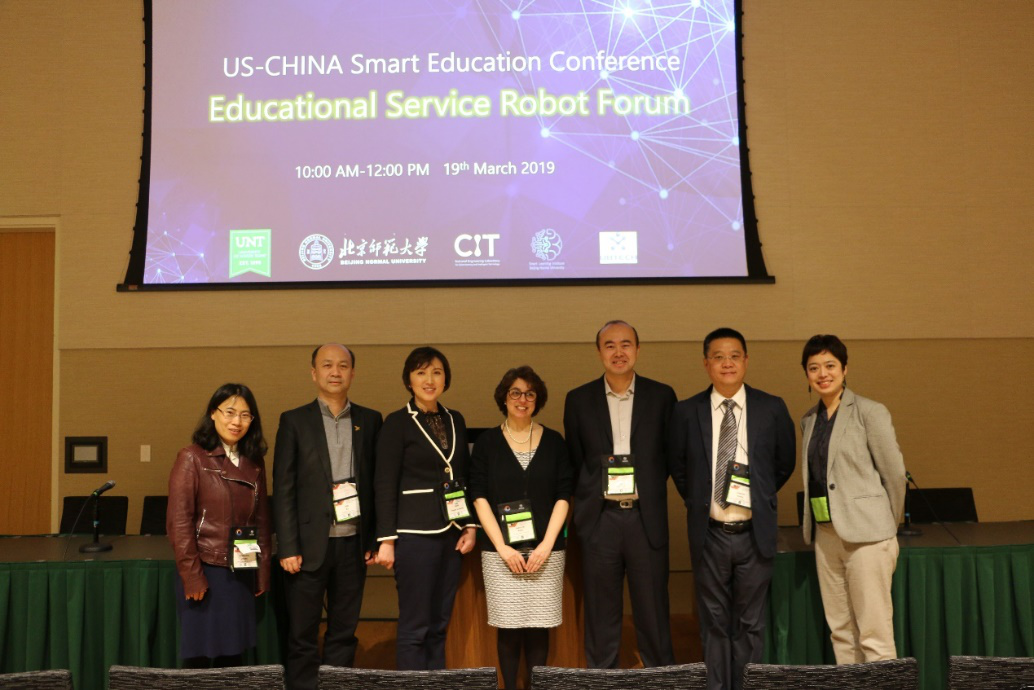
Guests of the Forum
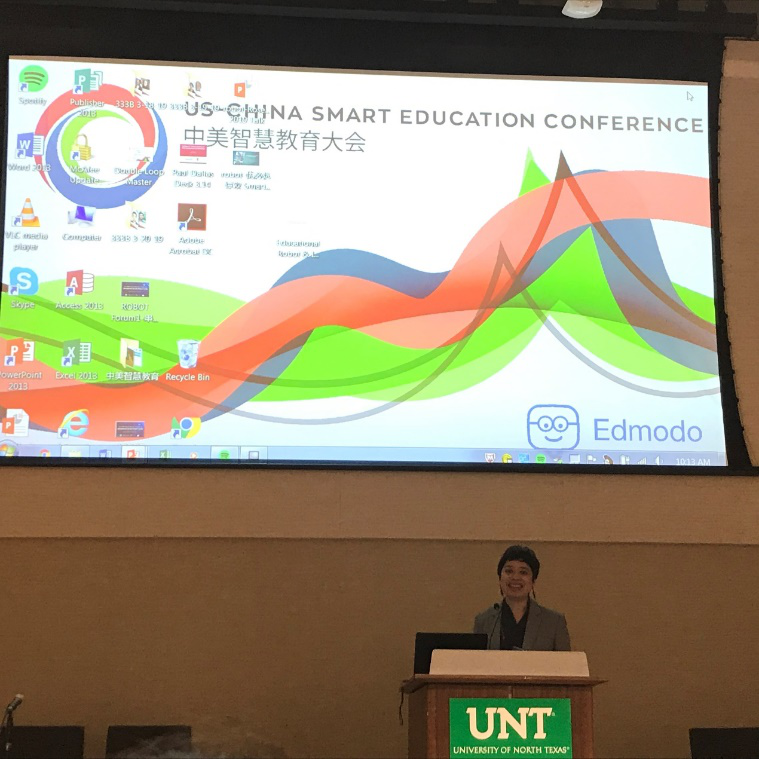 Dr. Xiaomei Yan
Dr. Xiaomei Yan
Nian-shing Chen, Professor of Griffith University in Australia, reported on educational robots and the application of Internet of Things (IOT) in multilingual learning. Children learn language while immersed in the environment. To integrate learning with listening, watching, touching, listening, playing and interacting, it is very important to provide a naturally-immersive language learning environment. However, due to various limitations and difficulties, it is impossible to provide children with such a multilingual learning environment. Prof. Chen proposed that robots and toys connected to IOT would provide learners with immersive multilingual learning situations. After the robot captures the scenario information, it will provide an immersive learning environment for learners. In this process, children will acquire the same language feedback as what is from their parents while playing with robot toys. Meanwhile, Prof. Chen shared the functions of software and hardware as well as the system structure of related design, and introduced the current research progress. Dr. Xiaomei Yan
Dr. Xiaomei Yan Professor Nian-shing Chen
Professor Nian-shing Chen
Dr. Eugene G. Kowch, Educational Leader, Chairman of the Department of Policy and Governance from the University of Calgary, shared his report focusing on the social and ethical issues of AI and robots. He pointed out that educational service robots had some advantages over human in some aspects, such as more patience. But robots may also cause ethical and security issues. At present, there are very poor standards and researches on the legislation of this aspect. It is a problem about how to make robots serve us and our education better that requires deep consideration. Dr. Kowch analyzed how to deal with the potential problems from different dimensions such as government, schools and teachers, and finally pointed out that despite these problems, we should still embrace science and technology with an open attitude.
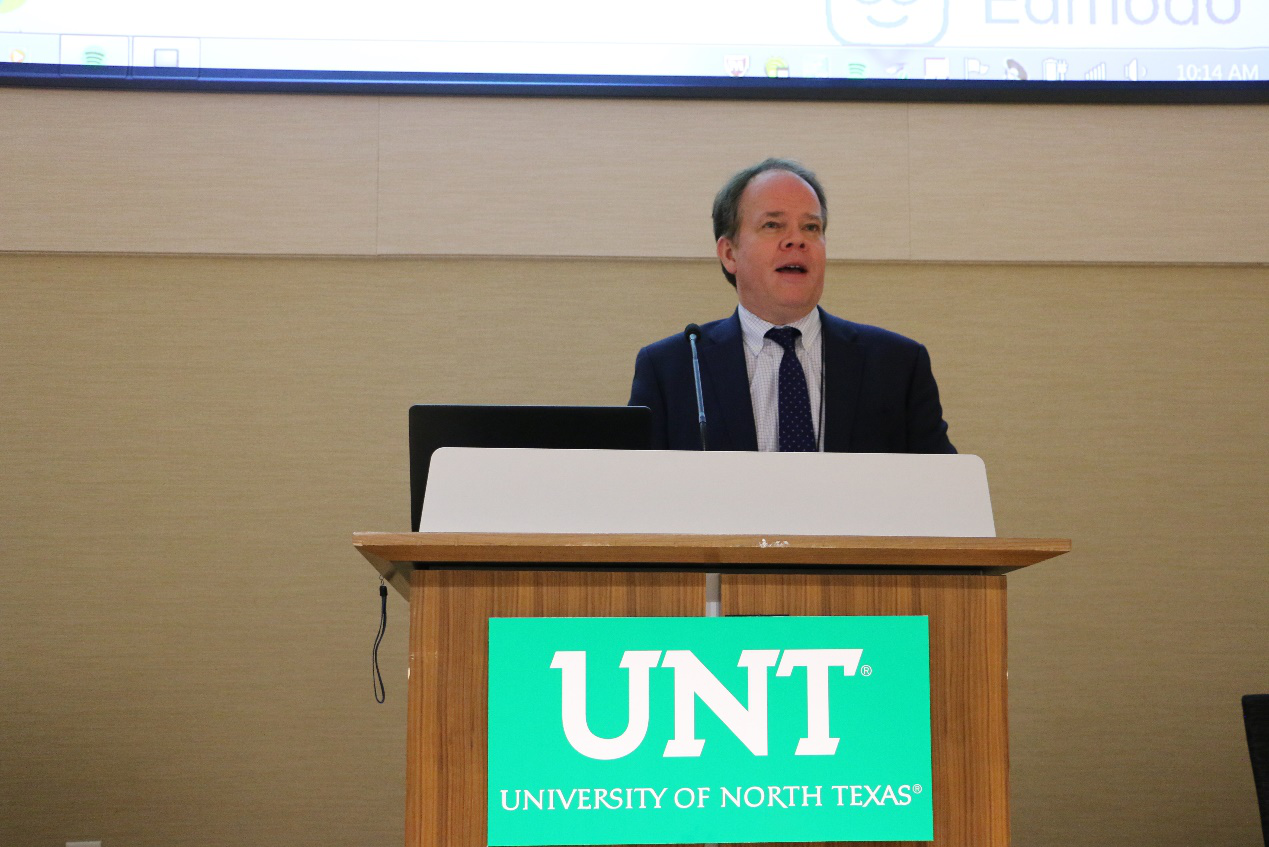 Dr. Eugene G. Kowch
Dr. Eugene G. Kowch
Ying Tang, Professor of Electronics and Computer Engineering, Rowan University (Glassboro), New Jersey, introduced the concept of parallel educational robots, pointing out that education is moving towards network-physics-social interaction and three-dimensional interaction. Prof. Tang shared the application and development of parallel intelligence in education. She pointed out that robots can play roles in education, including teachers, learning partners and novices. The roles of virtual robots include instructors, collaborative robots, knowledge robots and predictive robots, etc. Finally, Prof. Tang introduced two models and their application: iSTREAM(STEM + no-traditional content in Artificial Intelligence (i), Robotics (R) and Art (A) and iCDIOS(Intelligent, Conceive, Design, Implement, Operate, Services), as well as her prospect of future.
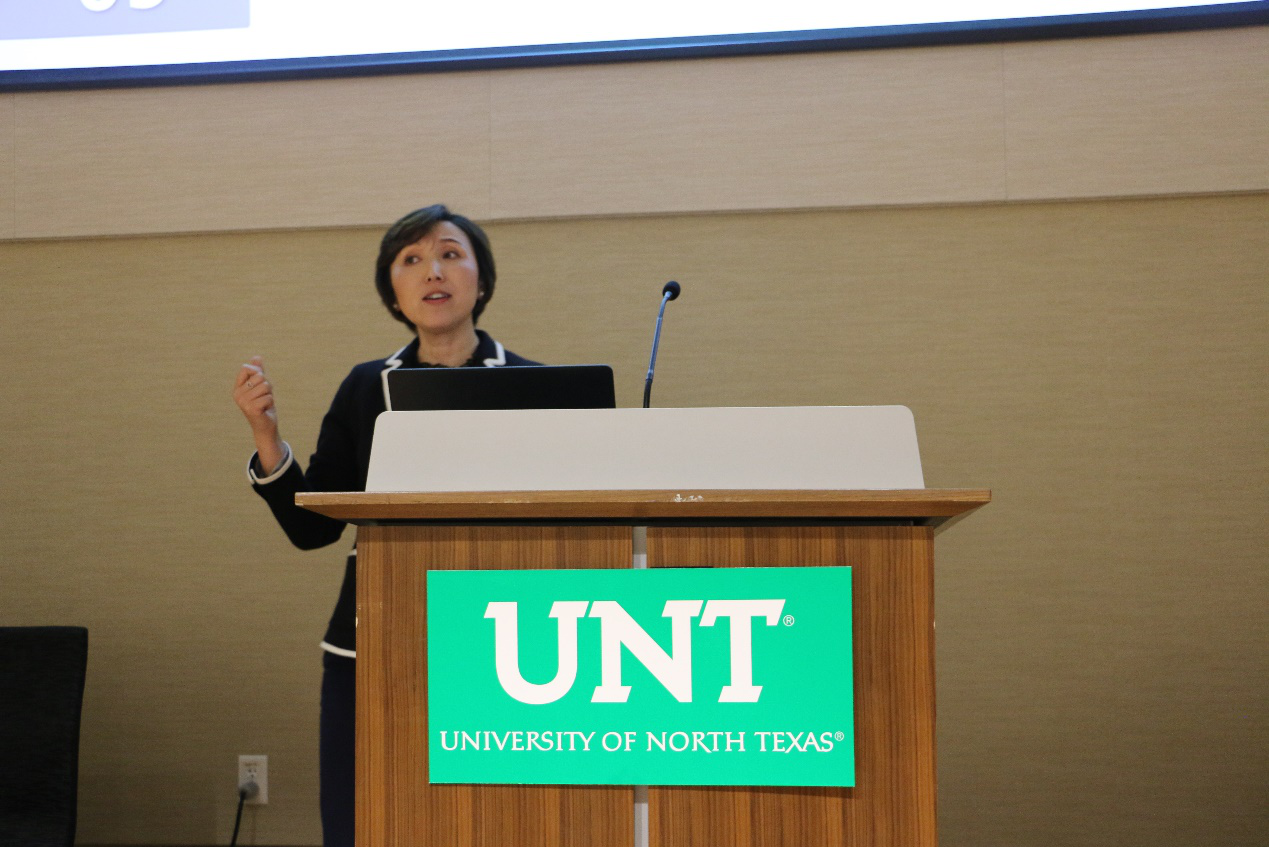 Prof. Ying Tang
Prof. Ying Tang
Carolyn Penstein Rosé, Professor of Carnegie Mellon University, gave a report on the application of software robots in group discussions. Prof. Carolyn first introduced the background of the study. The research for more than a decade has shown that students can benefit from interaction in learning groups when providing interactive and context-sensitive support. Teacher-assisted technology is used for assisting the intervention of learning. Intelligent software agents triggered by automatic analysis of real-time collaborative discussions are used to facilitate discussion. In addition to improving the positive effect of collaboration and increasing the progress of group students before and after testing, we can see that students with supported group cooperation experience bring the positive effect back to the teacher-led discussion of the whole class. The results show that the technologies supporting group cooperation can expand teachers' support ability in large-scale learning.
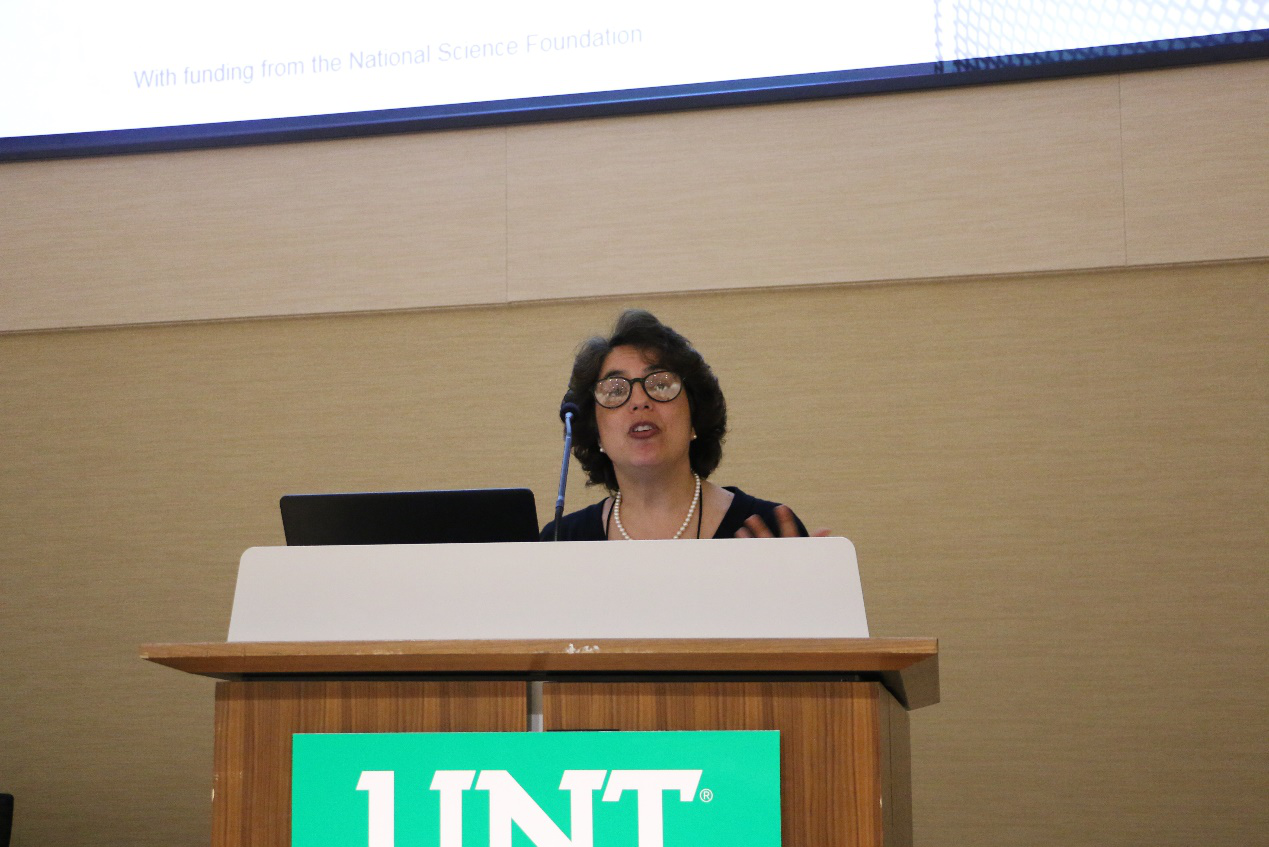 Prof. Carolyn Penstein Rosé
Prof. Carolyn Penstein Rosé
Dr. Huan Tan, Vice President and Head of the R&D Center in North American of UBTECH, delivered a report on "Education-oriented Cognitive Robots". Dr. Tan introduced the research significance, challenges, opportunities and solutions of cognitive robots. With the development of smart education, the requirement for teachers' abilities is increasing, while educational robots have better abilities in many aspects, such as communication ability, listening skills, deep mastery of knowledge, etc. UBTECH predicts that the market for educational robots will reach $2 billion in 2023. However, challenges exist at the same time. Every student is different. It is worth consideration that how to improve the cognitive ability of educational service robots to help every students’ individuality develop. Finally, Dr. Tan shared the work that UBTECH had done in facing these challenges and the products it had developed.
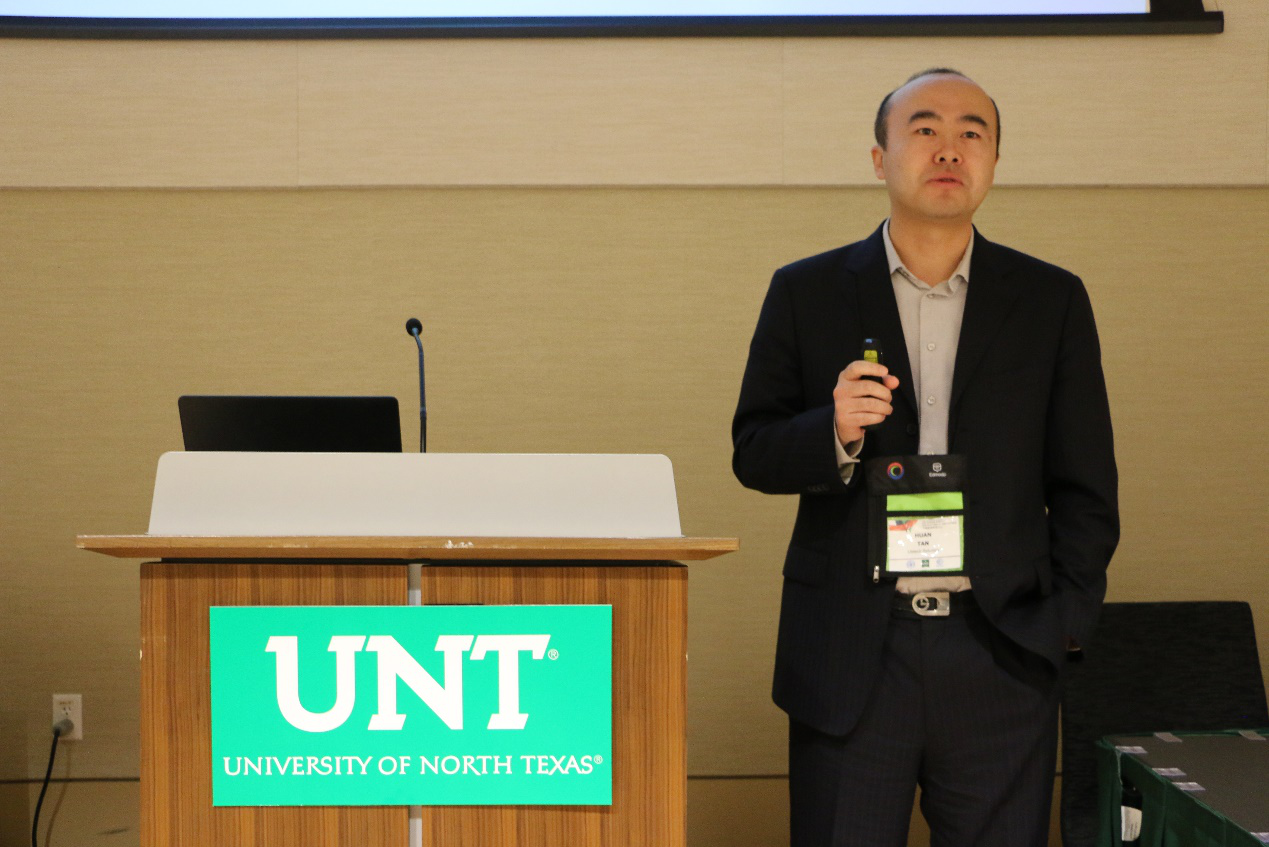 Dr. Huan Tan
Dr. Huan Tan
In addition to the wonderful “Educational Service Robots Forum”, many other important events such as Ed Tech Ascend pitch, the Principal Forum and the Annual Conference of the International Association for Smart Learning Environment (IASLE), sponsored by Edmodo, were also held on March 19th. Meanwhile, there were dozens of parallel lectures and workshops. The discussion areas included "Understanding the New Model of Human Learning" "International Technology Assisted Instruction and Management" “Understanding Complex Dynamic Systems” “Model-based Gamification Interactive Learning Environment”, etc.
At the plenary conference, Stephen Attenborough, Business Director of Virgin Galactic, gave a keynote report entitled “Space: The New Frontier”. Virgin Galactic is the world's first commercial space line, dedicated to fulfilling the dream of sending human to space. The report mentioned how this amazing project was created and its growth trajectory of continuous exploration. It also shared the progress of the project so far, including the latest extensive test projects. Steven also explained how Virgin Galaxy, as an enterprise, made a balance to achieve the dual goals of security and commercial viability.
At the plenary conference, Stephen Attenborough, Business Director of Virgin Galactic, gave a keynote report entitled “Space: The New Frontier”. Virgin Galactic is the world's first commercial space line, dedicated to fulfilling the dream of sending human to space. The report mentioned how this amazing project was created and its growth trajectory of continuous exploration. It also shared the progress of the project so far, including the latest extensive test projects. Steven also explained how Virgin Galaxy, as an enterprise, made a balance to achieve the dual goals of security and commercial viability.
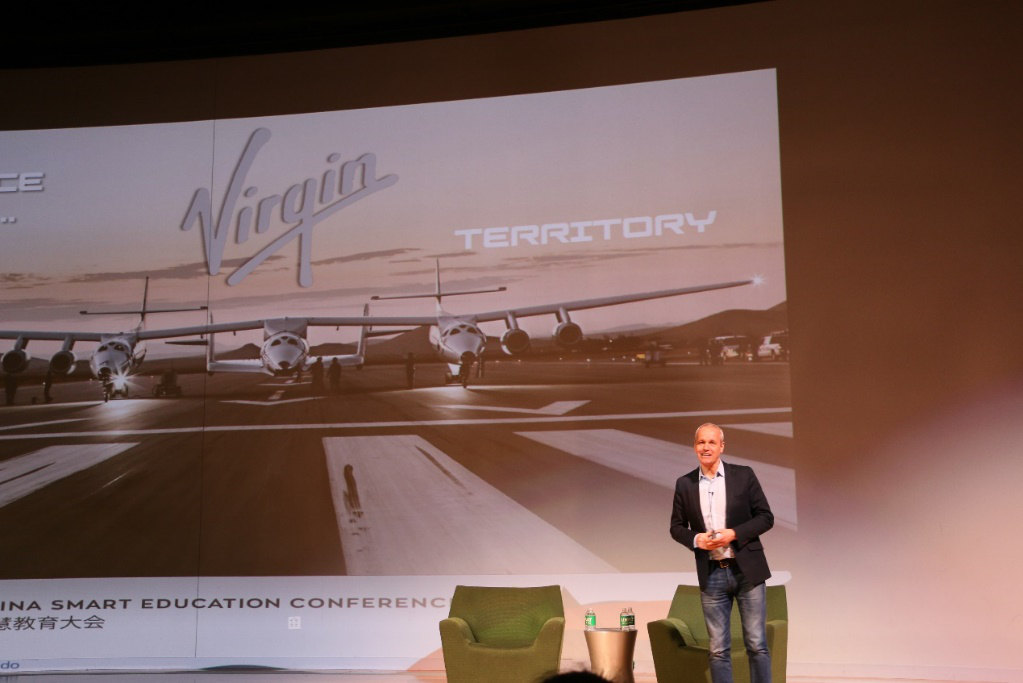
Stephen Attenborough
Ed Tech Ascend pitch, sponsored by Edmodo, a global education online platform owned by NetDragon, opened successfully. In this "elevator pitch competition", six entrepreneurs and entrepreneurship teams from Ed tech industry presented their products and visions to judges, companies and potential investors within the required time. After the conference, the winners will receive up to 20,000 US dollars for the starting fund of their entrepreneurial project, as well as the opportunities to cooperate with academics and enterprises to market their products in the future.
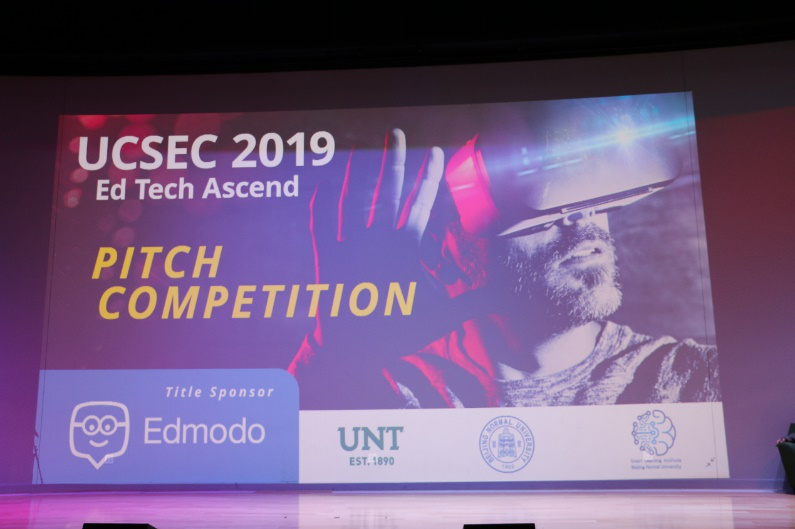
Ed Tech Ascend pitch
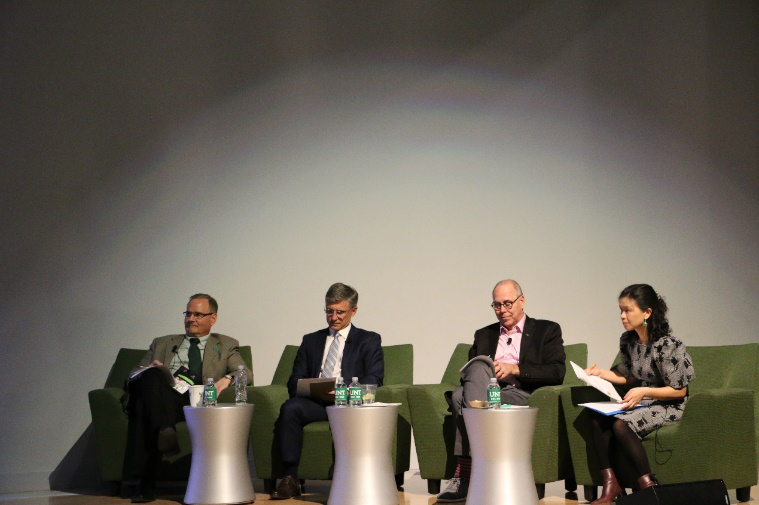 Evaluation Experts
Evaluation Experts
 Evaluation Experts
Evaluation Experts
The Principal Forum of Industry, University and Research, hosted by the President of the University of North Texas, is a seminar themed on school-enterprise cooperation. Executives and university representatives from the companies in North American gathered to discuss how universities and enterprises can cooperate and exchange better in talent cultivation.
 The Principal Forum of Industry, University and Research
The Principal Forum of Industry, University and Research
The 2019 Annual Conference of International Association of Smart Learning Environment (IASLE) was held smoothly. The members of IASLE gathered together to share their progress and achievements in the academic field over the past year. They also discussed the future development of IASLE, work plan and arrangement. At this annual conference of IASLE, Prof. Kinshuk was elected as the new chairman, and Prof. Ronghuai Huang and Prof. Nian-shing Chen as the vice-chairman.
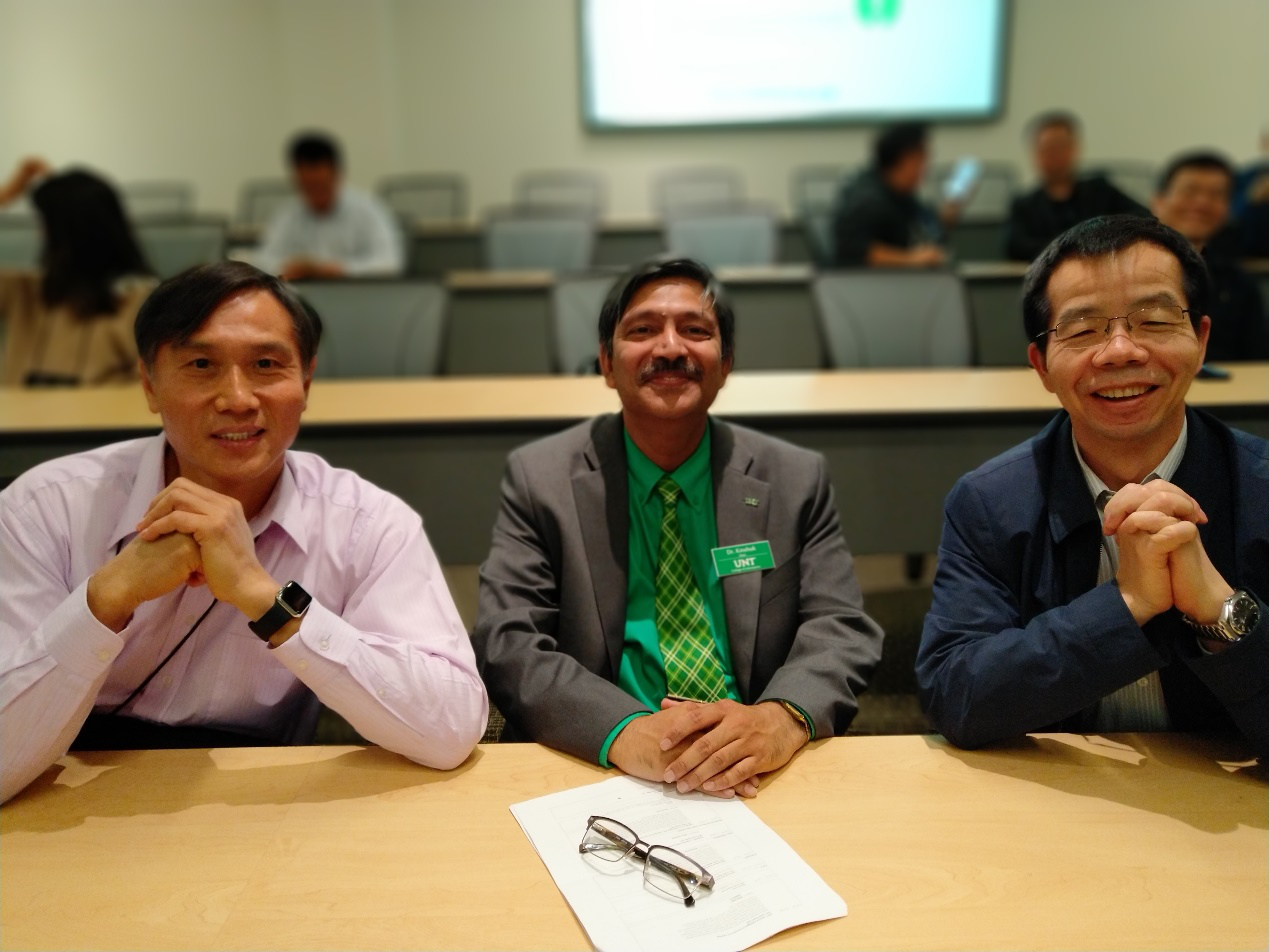
Prof. Kinshuk, New Chairman of IASLE
Prof. Ronghuai Huang and Prof. Nian-shing Chen, Vice-Chairman of IASLE
Prof. Ronghuai Huang and Prof. Nian-shing Chen, Vice-Chairman of IASLE
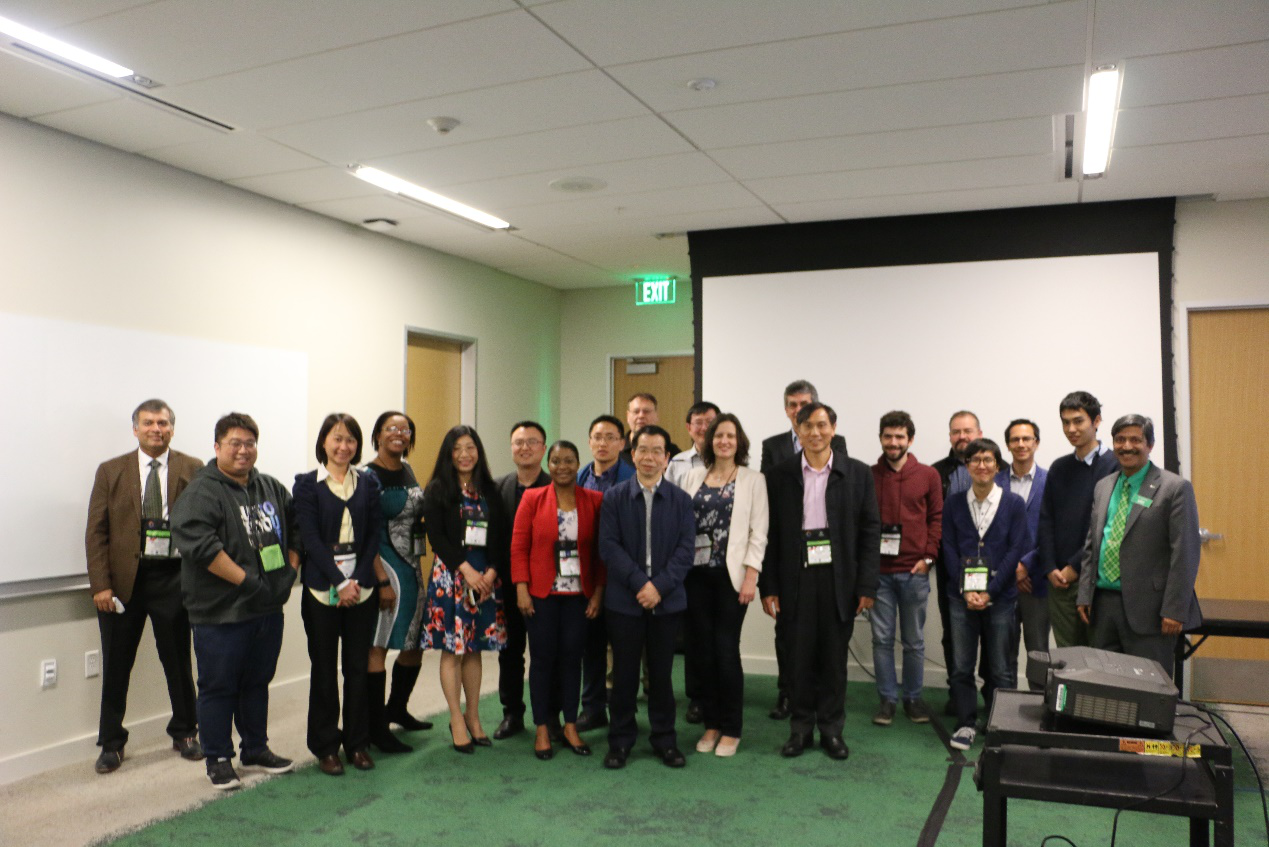 Guests of IASLE
Guests of IASLE
